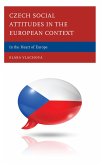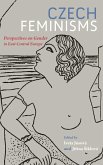Along with Bohemia and Moravia, Czech Silesia is the smallest of the three historical regions of the Czech Republic. The turbulent past has proven time and again to be problematic for its local communities and Czech society as a whole. The Czech Silesian identity has developed as a construction between the dominant German, Czech and partly Polish nationalisms. In this historically informed ethnographic study, Johana Wyss examines how various social actors construct, contest and negotiate Silesian identity and collective memory. The author discusses the dynamics of collective memory and forgetting in the process of identity formation. Through years of empirical field research, the author was able to examine how both majoritarian and ostracized groups can challenge national sentiments and negotiate their difficult legacies in a time of ethnonationalist radicalization. By focusing on a border region that has been largely ignored in international scholarship, this study makes an important contribution to European anthropology, borderland, and memory studies.







